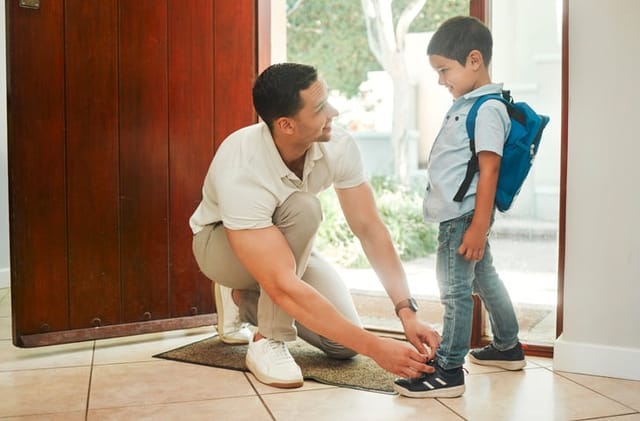We all post bits and pieces of our lives online, and while some of that info might seem totally harmless, it can open the door to trouble. Here’s a list of things that might not seem like a big deal to share, but definitely deserve a second thought. You don’t need to share absolutely everything on the internet!
1. Your home address

No surprises here. Letting everyone know where you live is pretty much an invitation for creeps. Plus, have you ever tried to get rid of junk mail? Once your address is out there, it’s tough to control who has it. Think twice before posting anything that makes your home easily identifiable, even seemingly harmless background details.
2. Vacation updates while you’re away

You’re basically saying, “My house is empty, please rob me!” Bragging about your awesome trip is best done after you’re back home. If you absolutely must share in real-time, limit your audience to trusted friends and family. And hey, the suspense will make your post-vacation photo dump even more exciting for your followers! Besides, wouldn’t you rather be relaxing and truly enjoying your vacation instead of worrying about what’s happening back home?
3. Photos revealing your location

Pictures near landmarks, street signs, even your usual coffee shop can give stalkers or thieves a clue to where you are. Be mindful of what’s in the background of your pics. Sometimes the coolest shots are the ones that keep your location a little mysterious. Plus, it keeps people guessing and adds a bit of intrigue to your online presence. Let your personality shine through in your photos, not your exact whereabouts.
4. Your phone number

Unless you love getting spam calls and texts, keep your phone number off public posts. If someone needs to contact you, they can send you a message. Remember, there are plenty of ways for legitimate businesses and people you know to get in touch without broadcasting your number to the world. Protect your privacy and avoid the annoyance of unwanted calls and messages.
5. Your full birthdate

Combined with other easy-to-find info, your birthdate can be a key piece for identity theft. A simple “Happy Birthday!” post will do, no need to share the year. Let people celebrate you without giving away potentially sensitive information. Enjoy the birthday wishes without making yourself vulnerable to fraud.
6. Your work schedule

Letting people know when you’re out of the house regularly is a bad idea, especially if you live alone. Keep those work hours to yourself. A little bit of mystery about your schedule is way safer than making yourself a predictable target. There’s no reason to reveal your comings and goings to the entire internet.
7. Your super-specific routines
“At the gym every Tuesday at 6 PM!” tells potential creeps exactly when and where to find you. A little bit of unpredictability goes a long way in staying safe. There’s no need to announce your every move – enjoy the freedom of keeping your schedule a little more flexible. Plus, switching up your routines keeps things interesting anyway!
8. Embarrassing photos of friends
Even if it’s funny, don’t post stuff without your friend’s permission. They might not find it hilarious. Would you want them posting embarrassing pics of you? Respect their online image the same way you’d want them to respect yours. A true friendship involves respecting boundaries, even in the digital world.
9. Rants about your job or boss

It might feel good in the moment, but venting online can come back to bite you professionally. Save those rants for a private chat with a trusted friend, not the whole internet. Remember, potential employers might be checking you out online too! Instead, focus on channeling any work frustrations into positive action and solutions.
10. Personal financial information
Anything beyond “I got paid!” is way too much info to put out there for scammers to grab. Keep the details of your bank account and financial life strictly private. No one needs to know your exact salary or how much you have in savings – those are conversations for you and your financial advisor. Celebrate your financial wins privately, don’t make yourself a target for those looking to take advantage.
11. Kids’ full names, schools, etc.

Oversharing about your children can put them at risk, sadly. Save those detailed updates for close friends and family. Stick to cute pics and general stories that don’t reveal too much. It’s safer, and it lets your kids have a say in their own online presence as they grow up. Protect your children’s privacy the same way you would protect your own.
12. Passwords (even jokingly)
This seems obvious, but you’d be surprised how often people slip up! Never even hint at your passwords online. Treat them like the keys to your house – you wouldn’t leave those lying around for anyone to grab either! Your passwords are the gateway to your online life, keep them secure at all costs.
13. Those “fun” personality quizzes

They often gather data that can be used to target you, or worse, guess your security answers. Stick to quizzes that are purely for entertainment value. If a quiz seems to be asking for a lot of personal info, it’s probably best to skip it. Don’t sacrifice your privacy for a moment of online amusement.
14. Medical information

It’s private for a reason! Don’t share diagnoses, medications, etc. where anyone can see it. Your health info should stay between you and your doctor. Support groups and forums specifically dedicated to health issues can be a safer space to discuss those things if you need to, but you should still keep personal info as vague as possible. Remember, your medical history is sensitive and personal, handle it with care.
15. Complaints about customers

Even if you don’t name names, it’s unprofessional and can get you in hot water at work. If you must vent about a customer, do it with a coworker you trust, not online. And remember, sometimes the best customer service is just taking a deep breath and staying calm. Protect your reputation and your job by handling difficult situations with professionalism.
16. Travel documents

Boarding passes, passport pics, etc. contain info scammers can misuse. Enjoy your trip and share the photos afterwards! There’s no need to give potential fraudsters a head start by posting all your travel details online. Focus on creating amazing memories and leave the online updates for when you safely return home.
Enjoy this piece? Give it a like and follow Bolde on MSN for more!







